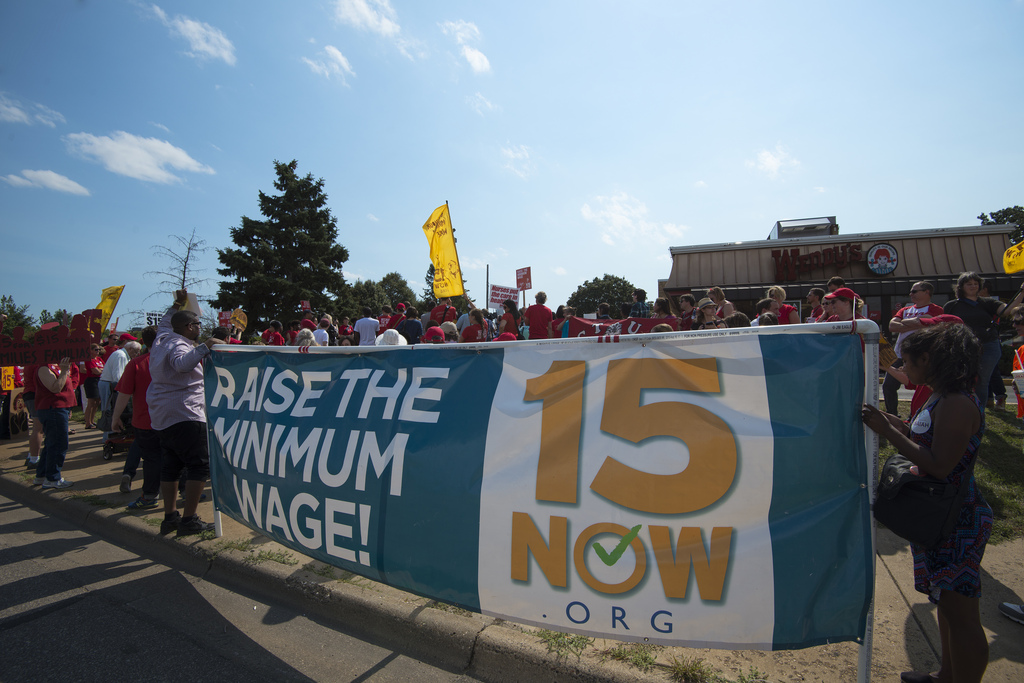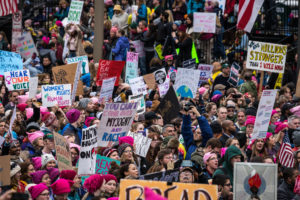This July, San Francisco’s minimum wage will increase from $14 to $15 per hour. This increase is one of many over the last few years, as the city’s minimum wage was just $12.25 in 2014.
San Francisco’s Jane Kim, District Six City Supervisor and mayoral candidate, stated in an interview with The Mercury News published on June 11, 2014 that this was the “strongest and most progressive minimum wage proposal in the country.” Kim advocated for the minimum wage plan in 2014, alongside former mayor Ed Lee.
The cost to live modestly in San Francisco for a year is approximately $40,000 for a single person, making it one of the most expensive cities in the country. In comparison, the living wage income in Des Moines, Iowa is $21,000.
Let’s examine a San Franciscan who earns $14 an hour, the current minimum wage. Assuming that person works 40 hours a week, 50 weeks a year, they would earn an annual total of $28,000. This is $12,000 less than what is considered necessary. A $14/hour minimum wage does not even come close to the amount they would need to support themselves, much less even one child.
While an increase of $1 won’t end poverty, it really can make a difference. For someone working the same 40 hours a week, 50 weeks a year, an increase to a $15/hour minimum wage would increase their annual income by $2000, up to $30,000 a year. It is a small step and the average worker still makes significantly less than they need, but it can still make a difference in low-income families.
With low wages and a high cost of living, food is often the first thing families cut in their budget. Lynda Sullivan, San Francisco Food Bank Board Director, explains that she expects that a higher minimum wage will “enable people to allocate more money to food, but because food is expensive, particularly nutritious food, the Food Bank won’t see a drop in our usage. What we will see is a better quality of life for those families.”
The Service Employees International Union 1021 strives to ensure that their workers have a voice all across the Bay Area. The SEIU 1021 specifically campaigned for the San Francisco minimum wage increase in 2014. Ryan Fetgef from the SEIU 1021 states that a wage increase of $1 per hour is particularly impactful on “many people trying to raise families or pay for housing. That increase alone can help these families who live on the poverty line.”

A common argument against increasing the minimum wage is that unemployment rates will rise, as employers will be forced to lay off employees. This is absolutely a valid concern, though some experts believe that San Francisco— as a wealthier city— will experience fewer job cuts due to the wage increase than will poorer, rural counties; San Francisco businesses are more likely to afford paying the higher wage than businesses in poorer counties.
That said, many people will still face consequences when the minimum wage increases, especially owners, and thus workers, at lower-quality restaurants. According to a Harvard Business School study conducted from 2008-2016 that examined restaurants in San Francisco, a $1 increase in minimum wage can cause a 14% increase in the likelihood that a three-star restaurant will close. While higher star and more well-known restaurants can afford to raise their prices as a solution to a minimum wage increase, median price or lesser known restaurants don’t always have that option.
But rich corporations and big businesses in the Bay Area can perhaps adjust to rising wages due to their greater economic resources. In 2017, executives earned 271 times more than average workers. And the CEO at Starbucks earns more than 600 times what their workers earn each hour.
By 2022, California will raise the minimum wage to $15/hour state-wide. Experts and politicians are still debating what the wage increase might do to unemployment.
Yet ultimately, in San Francisco, most workers seem to view the city’s wage increase as a helpful relief for struggling individuals and families; one more dollar an hour is one more dollar that San Francisco residents can put towards basic needs such as food and housing. As Fetgef states, increasing minimum wage is essential as “it helps people carry out the American dream.”






